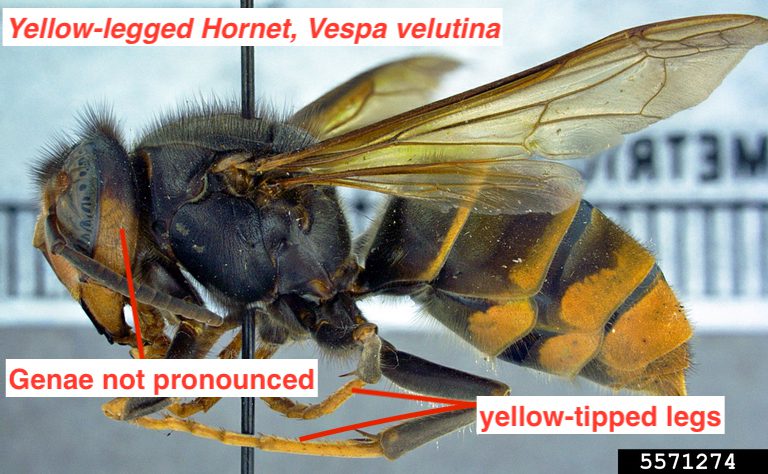Clemson, S.C.— Clemson University officials are urging South Carolina beekeepers and the public to be on the lookout for yellow-legged hornets after the invasive insect was discovered in the Savannah, Georgia, area.
The Georgia Department of Agriculture (GDA) is reporting that a Savannah-area beekeeper found an unusual hornet on his property and reported it to the GDA. On August 9, 2023, the U.S. Department of Agriculture’s Animal and Plant Health Inspection Service (APHIS) confirmed the University of Georgia’s identification of this insect as a yellow-legged hornet (Vespa velutina). This is the first time a live yellow-legged hornet has been found in the U.S.
While the yellow-legged hornet — not to be confused with the Asian giant hornet — is no more harmful to humans than other hornets, it can have a devastating impact on both managed and wild bees.
Although the hornet has not been detected in South Carolina, Clemson’s Department of Plant Industry Apiary Inspection Program — the regulatory agency charged with protecting the state’s beekeeping industry — in collaboration with Clemson Cooperative Extension Apiculture and Pollinator Program, will begin monitoring Lowcountry locations through an elaborate trapping system.

The program’s coordinator Brad Cavin is also urging the state’s beekeepers and public to stay vigilant.
“While we are spearheading a robust trapping protocol in the South Carolina Lowcountry, beekeepers, and the public both play an important role in our efforts to minimize any potential impact from this invasive pest. That’s why we are asking for public assistance with monitoring for and reporting unusual hornet activity, especially around honeybee hives,” said Cavin.
People who suspect they have found a yellow-legged hornet are urged to report their findings to www.clemson.edu/public/regulatory/plant-industry/invasive/ylh.html.
Clemson will work with federal officials to confirm suspected specimens and respond to active hornet colonies if they are located.
The yellow-legged hornet is native to Southeast Asia and has established itself in most of Europe and areas of the Middle East and Asia. The hornet builds egg-shaped paper nests above ground and often in trees. The nest can be large and house an average of 6,000 workers. This exotic hornet may be confused with several native insects, including the cicada killer wasp, the bald-faced hornet, paper wasps, queen yellowjackets, wood wasps and robber flies, but is distinguished from these other stinging insects by its larger size.
The public can visit this Clemson University publication to learn more about the hornet.
“The yellow legged hornet is a predatory insect that has been reported to attack western honeybee colonies and has become a serious pest of beekeeping operations where it has been introduced,” said Ben Powell, who directs Clemson Cooperative Extension’s Apiary and Pollinator program. “Establishment of this exotic pest in the U.S. would pose a significant threat to our already embattled beekeeping enterprises.”
Get in touch and we will connect you with the author or another expert.
Or email us at news@clemson.edu
